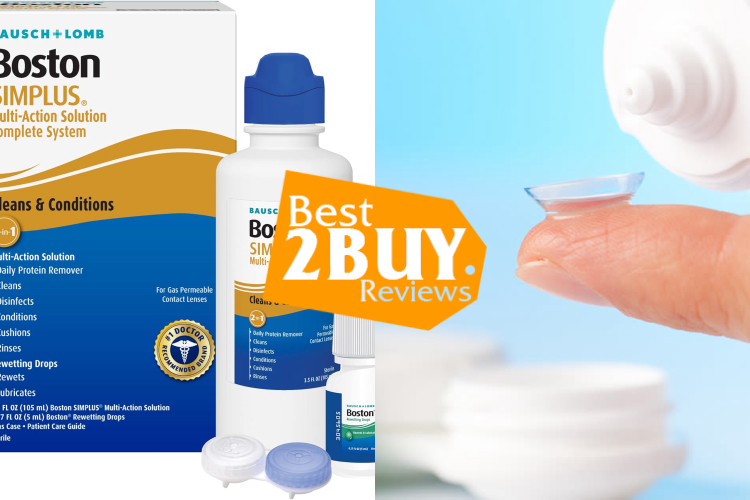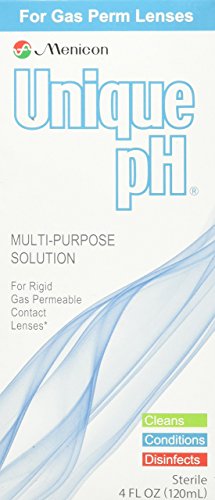How to Choose the Hard Contact Lens Care Products
The Comprehensive Guide to Hard Contact Lens Care Products

- 1. The Comprehensive Guide to Hard Contact Lens Care Products
- 1.1. The Importance Of Hard Contact Lens Care
- 1.1.1. Reducing the Risk of Infections
- 1.1.2. Preserving Lens Comfort
- 1.1.3. Maintaining Vision Quality
- 1.1.4. Extending Lens Lifespan
- 1.1.5. Preventing Corneal Changes
- 1.1.6. Minimizing Allergic Reactions
- 1.1.7. Compliance with Eye Care Professional Recommendations
- 1.1.8. Promoting Eye Health
- 1.2. Cleaning Solutions
- 1.2.1. Multipurpose Solutions
- 1.2.2. Hydrogen Peroxide Solutions
- 1.2.3. Enzymatic Cleaners
- 1.2.4. Saline Solution
- 1.2.5. Lens Cases
- 1.2.6. Rewetting Drops
- 1.2.7. Lens Insertion and Removal Tools
- 1.3. Tips for Effective Hard Contact Lens Care
- 1.4. Conclusion
- 1.1. The Importance Of Hard Contact Lens Care
Rigid gas-permeable (RGP) contact lenses, commonly known as hard contact lenses, prove to be a superior choice for individuals with irregular corneas, high prescriptions, or dry eyes. These lenses, crafted from a durable plastic material, typically silicone, offer a rigid design that sets them apart. Despite their stiffness compared to conventional lenses, RGP contacts facilitate better oxygen flow to the eyes than their soft counterparts.
While some may assume that wearing hard contact lenses is uncomfortable, any discomfort is generally experienced during the initial wearing or if foreign particles enter the lenses. Proper care and maintenance are paramount to ensuring their longevity and preserving optimal eye health. This guide explores the realm of hard contact lens care products, providing insights into essential items and recommended practices for their effective usage.
The Importance Of Hard Contact Lens Care
Ensuring the proper maintenance of hard contact lenses is vital for safeguarding eye health, ensuring lens comfort, and preserving optimal vision. The significance of caring for hard contact lenses is underscored by several key factors:
Reducing the Risk of Infections
Thoroughly cleaning and disinfecting hard lenses is crucial for eliminating accumulated debris, bacteria, and other microorganisms on the lens surface.
Inadequate cleaning increases the risk of infections, such as microbial keratitis, a serious condition that may lead to vision impairment.
Preserving Lens Comfort
Regular cleaning effectively removes protein deposits and debris that can accumulate over time, causing discomfort, blurred vision, and irritation.
Comfortable lenses promote consistent wear, facilitating improved vision correction.
Maintaining Vision Quality
Protein deposits and debris can compromise the optical clarity of lenses, resulting in decreased visual acuity.
Consistent cleaning and proper care contribute to clearer vision, ensuring optimal functioning of the lenses.
Extending Lens Lifespan
Adequate care plays a crucial role in prolonging the life of hard contact lenses by preventing the accumulation of deposits that could damage or prematurely deteriorate the lenses.
Preventing Corneal Changes
Improper care may lead to corneal changes, such as neovascularization or corneal warping, which can impact the fit of lenses and compromise vision correction.
Minimizing Allergic Reactions
Some individuals may be sensitive to preservatives or cleaning solutions. Selecting appropriate solutions and adhering to recommended cleaning practices minimizes the risk of allergic reactions.
Compliance with Eye Care Professional Recommendations
Adhering to specific care instructions provided by eye care professionals based on individual needs and prescribed lens types is essential for maintaining eye health and optimal vision.
Promoting Eye Health
Practicing good contact lens hygiene is integral to overall eye health. Regular eye check-ups, adherence to recommended wearing schedules, and proper care contribute to preventing potential complications.
Cleaning Solutions
Multipurpose Solutions
Multipurpose solutions are versatile and designed to clean, disinfect, and store hard contact lenses. They eliminate debris, protein deposits, and microorganisms that can accumulate on the lens surface. Users should follow the recommended rubbing and rinsing steps for thorough cleaning.
Hydrogen Peroxide Solutions
Hydrogen peroxide solutions provide a deep clean by breaking down and removing stubborn deposits. A special lens case with a built-in neutralization disk is required to neutralize the hydrogen peroxide, transforming it into saline solution before wearing the lenses.
Enzymatic Cleaners
Enzymatic cleaners are designed for weekly use to break down protein deposits that may not be effectively removed by regular cleaning solutions. This extra step enhances the cleanliness of the lenses and improves comfort during wear. Users should carefully follow the instructions for the correct usage of enzymatic cleaners.
Saline Solution
Saline solution is used to rinse and store hard contact lenses. It's crucial for preparing lenses for insertion and ensuring they remain hydrated while stored in the lens case. Saline solution is not a disinfectant, so it should be used in conjunction with a multipurpose or hydrogen peroxide cleaning solution.
Lens Cases
A clean and appropriately replaced lens case is vital for maintaining the sterility of hard contact lenses. Lens cases should be replaced every three months to prevent the buildup of bacteria. It is essential to store lenses in a case filled with fresh disinfecting solution to ensure a safe and hygienic environment for the lenses.
Rewetting Drops
Rewetting drops provide relief for dry or irritated eyes and can be used while wearing hard contact lenses. These drops help maintain comfort by moisturizing the lenses throughout the day. It's important to choose preservative-free drops to avoid irritation.
Lens Insertion and Removal Tools
Tools such as suction cups and lens insertion/removal devices can be beneficial for those who find it challenging to handle hard contact lenses. These aids help prevent damage to the lenses and make the insertion and removal process more comfortable.
Tips for Effective Hard Contact Lens Care
Proper care and maintenance of hard contact lenses are crucial for ensuring eye health and maximizing the lifespan of the lenses. Here are some tips for effective hard contact lens care:
- Wash Your Hands: Always wash your hands with mild, non-perfumed soap and water before handling your lenses. Dry them with a lint-free towel to avoid transferring debris to the lenses.
- Use the Right Cleaning Solution: Follow your eye care professional's recommendations for the appropriate cleaning solution. Typically, this involves using a disinfecting solution to clean and soak the lenses overnight.
- Clean Lenses Regularly: Clean your lenses daily, even if you don't wear them every day. Rub the lenses with the recommended cleaning solution using your fingertips to remove any deposits.
- Rinse Thoroughly: After cleaning, rinse your lenses thoroughly with the recommended saline or disinfecting solution to remove any cleaning solution residue.
- Disinfect Regularly: Disinfect your lenses by soaking them in the disinfecting solution provided by your eye care professional. Follow the recommended soaking time, and avoid reusing old solution.
- Avoid Water Exposure: Never expose your lenses to water from the tap, bottled water, or swimming pools. Water may contain microorganisms that can lead to eye infections.
- Avoid Sleeping in Lenses: Remove your lenses before sleeping, unless your eye care professional specifically advises extended or overnight wear.
Conclusion
Ensuring clear vision, comfort, and long-term eye health requires diligent care and maintenance of hard contact lenses. By integrating appropriate hard contact lens care products into your daily regimen and adhering to recommended practices, you can experience the advantages of these durable and effective vision correction devices. For personalized advice and recommendations tailored to your specific needs and eye health, it is advisable to consult with your eye care professional.









